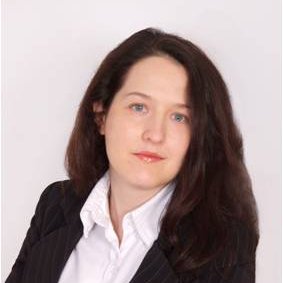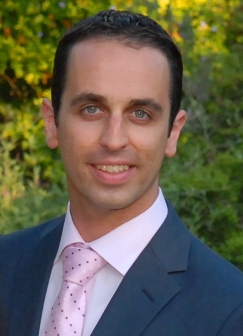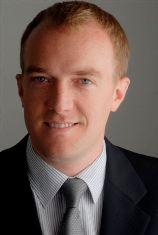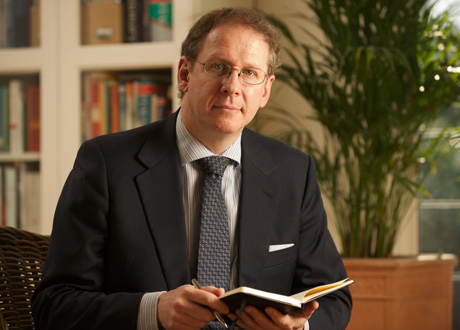
Julia Nammuni, SMF Candidate, LBS
It is more than 15 months since I began my full time MBA at London Business School. Time seems to fly by and the end of my degree is approaching fast.
I recently attended some MBA fairs and met new prospective MBA students to share my experience and to help answer their questions. They reminded me of myself not so long ago, making me reflect on my experience to date:
I started my engineering career in an international engineering consultancy in the ports and maritime division after completing my undergraduate degree in Civil Engineering at Imperial College. My employer kindly sponsored me to complete a post-graduate degree in ports at the TU Delft and subsequently I worked on large scale infrastructure projects in the Middle East, Asia and Europe. The work experience I gained was very rewarding and allowed me to achieve chartership.
Nevertheless, I was becoming more and more interested in strategy and commercial aspects which led, after some soul-searching, to an MBA at London Business School. I was fortunate to receive assistance from Sainsbury Management Fellowship that helped me realise my idea. I am very grateful for the support, without it my MBA journey would have been difficult.
After my first year of courses, I had the opportunity to work during my summer break as a consultant at the Boston Consulting Group in London. The project work was challenging, interesting and created a positive impact for the business. Overall, it was a very enjoyable experience and I am pleased to be returning to the company fulltime upon graduation.
I love travelling and in the second year of my MBA, I did an exchange term at CEIBS (China Europe International Business School) in Shanghai to improve my Mandarin and to explore the region.
Two questions seem to come up repeatedly by prospective MBA students. I hope that by sharing my response to these I may be able to help other engineers thinking about an MBA:
How difficult is the transition to study an MBA, especially for an engineer?
I remember that I was myself very worried about this issue. In my experience to date, engineers do well at business school. What is important to realise is that in a MBA programme there will be professionals from many backgrounds who will have different strength and weaknesses that compensate each other. Thus you learn as much from each other as with each other on the course.
In my study group we had a doctor, an accountant, two consultants and another engineer. The professions in my year group included many different backgrounds such as a professional athlete, lawyers, diplomats, bankers and many more. In addition, almost 90% of the MBA student population is international with experience gained in many different countries. However, all students had at least one thing in common: a unique perspective and insight that enhanced my understanding.
Learning business language was an important part of my MBA journey as an engineer. There were acronyms like “PE”, “VC” and words like “portfolio theory” that were used in discussions that did not mean very much to me at the outset. However, like any language once I learnt what these terms meant, it was no longer difficult to understand.
During the MBA I was never far from an expert in any given topic who was happy to explain terms and concepts or to share their point of view! And then, there are advantages that engineers have such as strong mathematical and problem solving skills that are useful in most courses. Thus it seemed to me that I needed to master the language and then to apply my problem solving skills in a different context.
An important difference in the problem-solving approach to me was that as an engineer, I used to try to come up in my mind with hypothetical scenarios to destroy my designs and solutions to problems. Only if I could no longer destroy them or render them “useless” in my mind, I would consider them further. In the MBA, it seems to me there is much more emphasis on possibilities and adapting solutions as needed. Ultimately, in civil engineering, a design life of 50 years is not unusual and failure can lead to loss of life, necessitating a very careful evaluation of possible design scenarios. Yet many business problems do not have such a long time horizon, do not include the risk of loss of life but require solutions quickly that can be adapted as needed. Therefore, my approach needed to change to be focused more on potential solutions and likely key issues rather than all the potential problems that could exist.
Thus in conclusion, for me the transition to studying for an MBA required me to adapt to a new language and to change my approach in problem-solving.
And what are your greatest challenges in the MBA?
My greatest challenge in the MBA was and still is time management and prioritisation. There are many different events going on all the time and real choices have to be made. FOMO, Fear Of Missing Out, is the term that describes this phenomenon at London Business School and many other business schools.
Initially, FOMO was almost overwhelming as there were so many opportunities. Every evening there seemed to be at least seven equally interesting but conflicting events requiring a choice to be made: do I go to one of the career events, one the corporate events, one of the club events, a party or the pub to meet friends? With time passing, my priorities started to emerge.
Nevertheless, every now and again about of FOMO does kick in. Thus, I constantly re-evaluate what is important to me. Further, I am learning to accept that I will miss interesting events as it is impossible to attend them all!
You may also be interested in reading interviews with the latest winners of the SMF MBA Scholarship.






















